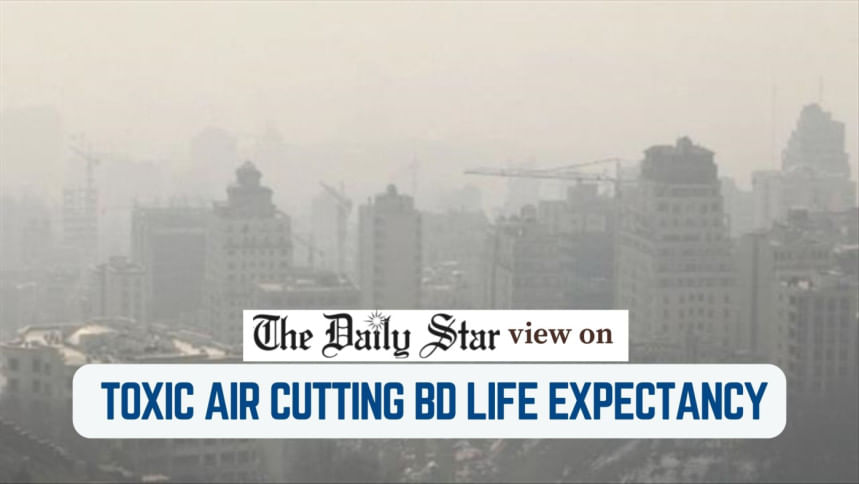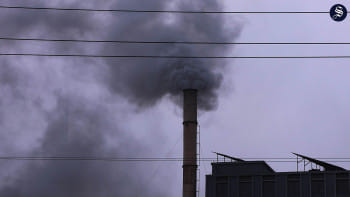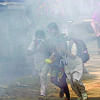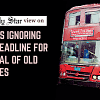Act now to curb air pollution

We are distressed by the lack of measures to curb air pollution which continues to wreak havoc across the country, posing a serious threat to public health. According to a recent report, the average life expectancy in Bangladesh is being cut short by 5.5 years due to toxic air, making it the deadliest external health risk in the country. The report, published by the University of Chicago's Energy Policy Institute (EPIC), warns that the health toll caused by particulate matter (PM) pollution far surpasses that of tobacco use, malnutrition or unsafe water. While smoking shortens life expectancy by approximately two years, malnutrition accounts for a reduction of 1.4 years. According to the study, Bangladesh's population is exposed to fine particulate matter pollution levels that exceed both the World Health Organization (WHO) guideline of five micrograms per cubic metre and the national standard of 35. These findings are deeply worrying.
In recent years, various reports and studies have highlighted the perils of air pollution, often ranking Dhaka among the most polluted cities in the world. One study reported that air pollution causes about 20 percent of all premature deaths in Bangladesh, while another linked poor air quality to rising cases of premature births and low birth weight in Dhaka. Amid growing concerns from citizens and environmentalists, the Ministry of Environment, Forest and Climate Change formulated the Air Pollution Control Rules in 2022, but it remains unimplemented to this day.
Sources of PM2.5 in the country include transboundary pollution, brick kilns, smoke from low-grade fuels, solid waste burning, dust from construction sites, etc. Reportedly, brick kilns around Dhaka alone contribute 58 percent of the city's air pollution. Although there is a law that prohibits kilns near residential, commercial, agricultural and sensitive areas, it has been hardly enforced. Earlier this year, the High Court ordered the removal of all illegal brick kilns nationwide, yet no visible progress has been made to this end. Another major challenge is phasing out old, unfit vehicles, a key source of pollution in the cities. The interim government initiated a plan to remove expired, dilapidated vehicles from the roads, but vehicle owners have not complied. As a result, rundown vehicles emitting black smoke remain a common sight in the capital.
As laws and policies remain largely unenforced, air pollution continues to worsen by the day. To contain the debilitating effects of air pollution, the government must immediately implement the Air Pollution Control Rules. This requires formulating a National Air Quality Control Plan, nationwide monitoring, identifying pollution sources, and setting emission standards for industries, vehicles, and major projects. We need some tangible progress in combating air pollution before it's too late.


 For all latest news, follow The Daily Star's Google News channel.
For all latest news, follow The Daily Star's Google News channel. 









Comments